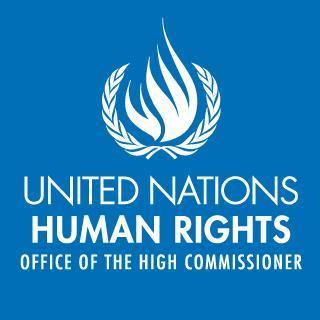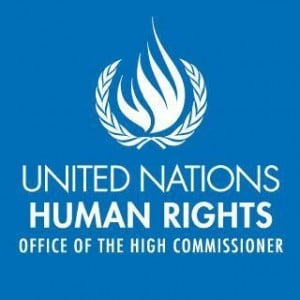By Libya Herald reporter.
Malta, 1 October 2015:
The . . .[restrict]Libyan Women’s Platform For Peace (LWPP), a leading Libyan women’s NGO, made a joint statement with the NGO Women’s International League of Peace & Freedom (WILPF) at the 30th Session of the Human Rights and capacity building to improve human rights in Libya recently.
The Human Rights Council heard the presentation of the oral update of the High Commissioner on the mission to investigate violations and abuses of international human rights law committed in Libya since 2014 followed by an interactive dialogue.
LWPP welcomed and supported the Human Rights fact-finding mission efforts by the office of the High Commissioner, and urged that the whole truth to be revealed and recorded.
To this end, LWPP said that the participation of citizens of Libya, including women, in the assessment team is imperative. LWPP said that it strongly believes that there is a need to put an end to the political fragmentation of Libya.
The NGO also believes that there is an urgent need to consolidate all efforts of reconciliation in order to reach a national consensus as soon as possible to confront the unprecedented security, political and economic deterioration.
‘’It is time to make compromises and reach consensus. Nevertheless, such consensus should be based on the respect of the democratic process, peaceful transfer of power, separation of powers, human rights and rule of law. Establishing the National Accord Government will not bring sustainable peace in Libya. Yet it maybe a concrete step towards stabilization’’, LWPP aaded.
However, the statement continued ‘’not addressing the root causes and issues like: transitional justice, ending impunity and demilitarization, demobilization, rehabilitation, and reintegration of armed groups (DDRR) with full international support and guarantees will only result in a fragile peace which will only last for a short while’’.
https://libyanwomensplatformforpeace.wordpress.com
Statement on the technical assistance and capacity-building to improve human rights in Libya
30th Session HRC
LWPP and WILPF
The situation in Libya reached an important stage, where terrorism is threatening to engulf the country one city at a time and the unspoken humanitarian deterioration reaching frightening levels.
Women in Libya
The conflict and war crimes being waged in post-revolution Libya pose important challenges to women’s meaningful exercise of human rights and engagement in the transition and the advancement of gender equality in the country, including the ability to create inclusive governance institutions. The most significant obstacle to women’s full exercise of human rights, political participation, and share of decision-making roles is currently the unchecked militarization and violent extremism plaguing Libya today, perpetuating armed conflict and war crimes.
CEDAW General Recommendation 30 and UNSCR 1325, et al Issued in October 2013, CEDAW General Recommendation 30 obliges Libya as a State Party to take legislative, policy and other appropriate measures to realize “substantive gender equality before, during and after conflict and ensuring that women’s diverse experiences are fully integrated into all peace building, peacemaking, and reconstruction processes,” binding States Parties to report on fulfillment of UNSCR 1325 and related resolutions.
Transitional justice and participation of women
There must be no impunity for warlords. There must be inclusive and gender-sensitive negotiations and peace building processes, DDRR, and security sector reform (SSR). From this foundation, rule of law and democratic governance will be more successfully established, whereupon the State must be held accountable to its legal obligations to respect, protect, and fulfill the human rights guaranteed to all women, men, youth, minorities, and those within its borders.
The steps the State and the international community need to take must be inclusive of women, youth, minorities, and civil society – engaging more parties than just the militant groups. Sustainable peace, conflict resolution, and transitional justice affect and involve civil society constituencies as much as combatants. Thus, all steps toward peace and security must be inclusive, from the start.
Human Rights Defenders
Reports of militias and other armed forces having committed serious violations of international law is of deep concern. Politically motivated killings of security officers, judges, activists, journalists, and other civilians have not been investigated or punished.
Protection of civil society members and human rights defenders must be paramount for their safe participation in the peace, reconciliation, and political processes.
The female human rights activists and leaders Salwa Bugaighis, cofounder of the Libyan Women’s Platform for Peace (LWPP), and Fareha al Barqawi were each assassinated by militias in 2014 for calling for and advocating for a peaceful transition of power and inclusive national dialogue.
The Libyan Women’s Platform for Peace in partnership with Karama, an international NGO, have launched a campaign called” Justice for Salwa is Justice for All’ to call for an independent investigation in the extra judicial killings of Salwa and other civil society activists.
Two young activist in Benghazi – Tawfik Bensuad and Sami Elkawafi were also assassinated.
In Tripoli as well civil society activists are under attack. Militias are publicly calling the opposition ‘traitors’ and calling for their persecution.
Disarmament as a strategy for reconciliation
The State and the international community have failed to enact arms control, DDRR (disarmament, demobilization, rehabilitation, and reintegration), and to combat the rampant impunity for these violent crimes. As long as this continues, there is no security in which women or men can exercise their human rights or in which the rule of law can be re-established.
Political dialogue
The need to put an end to the political fragmentation must be fully recognized by all parties to the conflict. There is an urgent need to consolidate all efforts of reconciliation in order to reach a national consensus as soon as possible to confront the unprecedented security, political and economic deterioration. It’s time to make compromises and reach consensus.
Nevertheless, such consensus should be based on the respect of the democratic process, peaceful transfer of power, separation of powers, human rights and rule of law. Establishing the National Accord Government will not bring sustainable peace in Libya.
Yet it maybe a concrete step towards stabilisation. However, not addressing the root causes and issues like: transitional justice, ending impunity and demilitarization, demobilization, rehabilitation, and reintegration of armed groups (DDRR) with full international support and guarantees will only result in a fragile peace which will only last for a short while.
Role of the United Nations System
The people of Libya are living through exceptional circumstances and challenges. We emphasize our full support to the efforts led by the UN Special Representative to facilitate dialogue, and urge the opposing camps in Libya to end the fighting and join in full support of a political agreement.
We remain convinced that a final agreement should involve the commitment of all parties to the principles of international humanitarian and human rights law.
We support and welcome the ongoing Fact-Finding efforts by the office of the High Commissioner, and urge for the whole truth to be revealed and recorded. To this end, the participation of citizens of Libya, including women, in the assessment team is imperative.
Recommendations:
UNSC resolutions 2174, 1325 and 2122 must be fully implemented, including accountability and political peaceful resolution with women’s full participation, including civil society.
Cooperation with the High Commissioner must continue in order to benefit from technical assistance necessary to help create a solid legal framework, strengthen national structures for human rights, and ensure the efficient administration of justice in the fight against impunity, abuses and all other attacks on human rights.
Full Cooperation with international human rights procedures and institutions, including with the HRC fact-finding mission.
Strengthening of cooperation with UNSMIL and OHCHR, in order to resume capacity building of national institutions dealing with human rights, transitional justice and the rule of law, according to its Government’s expressed wishes.
Ensuring protection of civilians, establishing and engaging in an inclusive peace process and political dialogue with militant groups and civil society, providing for the security of all constituents in those processes, ensuring justice to victims of violence committed by State and non-State actors, and designating individuals to be subject to the UNSC’s described sanctions.
Ending impunity for all warlords, the militias and those affiliated to them who planned and supported their atrocities; holding them accountable for their war crimes and subject them to investigation, prosecution, and punishment to the full extent of national and international law.
Enacting concrete and immediate measures to fulfill the legal obligations under CEDAW General Recommendation 30 related to arms control to prevent its use for violence against women, temporary special measures for women’s participation in peace and post-conflict processes, gender-responsive SSR and DDRR, and prosecution of sexual violence in the conflict, among others. [/restrict]







